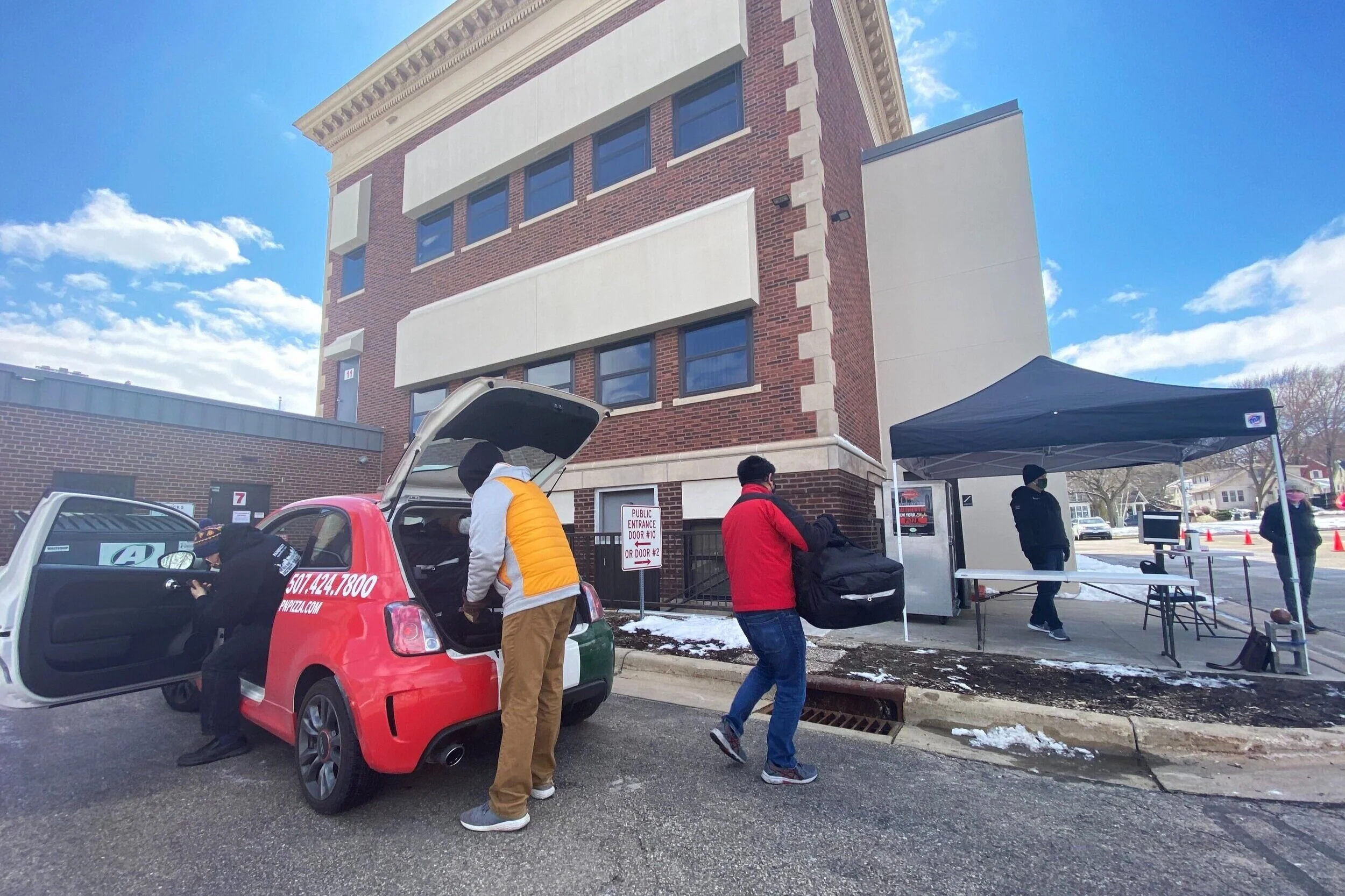Testing a factor in Olmsted County's higher per capita rate of Covid-19
It’s a question we have been asked multiple times over the past month: why are Olmsted County’s Covid-19 case totals so much greater than the totals from the surrounding areas?
We know the answer cannot simply be pinned on the population. Adjusted per capita, Olmsted County’s infection rate is one of the highest in southern Minnesota (tied with Winona County at 0.1 percent) and more than double the rates seen in surrounding counties. Meantime, St. Paul’s Ramsey County has a population of over 550,000 — over three times larger than Olmsted County — yet has only 14 more confirmed cases.
So, what gives? Asked this week, Kari Etrheim, communications coordinator for Olmsted County Public Health, said the testing capabilities of the area likely play a big role in Olmsted’s elevated case count.
Mayo Clinic has set up two sites of its own, while also partnering on a third testing location in collaboration with Olmsted County and Olmsted Medical Center. The collaborative site, the first of its kind in the state, has alone conducted more than 2,500 tests, county officials said Thursday.
Combine that with the processing capabilities at Mayo Clinic Laboratories — which says it can now process up to 8,000 molecular tests and 10,000 serological tests a day — and it’s easy to see how the Rochester metro finds itself as an outlier in a nation struggling to meet testing demands.
“From what I've seen and heard, we are testing a lot more than our surrounding areas,” said Etrheim. “You can imagine the more we look, the more we’ll find.”
As of Thursday afternoon, Olmsted County has recorded 163 confirmed cases of Covid-19. Two deaths have been reported.
Closing the ‘exposure loop’
Mayo Clinic announced Wednesday they have devised a process capable of identifying and informing staff members exposed to Covid-19 within an average of two hours, no matter the time of day.
The system combines medical record data with other available non-medical information to trace which employees may have come into contact with an infectious Covid-19 patient.
The goal is to identify exposed employees before they come to work, limiting the spread of the virus as much as possible.
“This is a huge improvement,” said Dr. Laura Breeher, medical director of Mayo Clinic Occupational Health Services. “The digital tools will add efficiency and position us to continue contact tracing even if the number of Covid-19 cases increases substantially.”
The system is already being used on Mayo’s Rochester campus and will be rolled out in Arizona and Florida this week.
The End of the Handshake?
One of Mayo’s top experts on infectious diseases joined Dr. Anthony Fauci in calling for the end of the handshake as a traditional greeting.
Dr. Gregory Poland, director of the Mayo Clinic Vaccine Research Group, says hands are one of the body’s most prominent germ-carriers. Doing away with the handshake, he says, would slow the spread of Covid-19, plus seasonal diseases like influenza.
"The reality of it is, in modern times, you may well be harboring a bio-weapon, so to speak,” said Dr. Poland. “I think there are much more safe and culturally appropriate ways to indicate a greeting."
In an article in the BBC, Dr. Poland called the handshake an “outmoded custom,” one that “has no place in a culture that believes in germ theory.”
With a heightened focus on personal hygiene and possible spreading of germs, other Mayo doctors are hopeful some of the lessons learned during the pandemic will last past the time of quarantine.
Dr. Nipunie Rajapakse, a pediatric infectious disease and public health expert at Mayo, said improvements in hygiene to combat Covid-19 would be welcome changes in everyday life, as well.
“I hope people retain some of the things that we have really been pushing, like the importance of excellent handwashing,” Dr. Rajapakse said in a recent interview, “because even once we’re through the peak of the Covid-19 outbreak, that is still a valuable thing for control of other illnesses, like influenza, that we know are going to be around for a long time to come.”
Isaac Jahns is a Rochester native and a 2019 graduate of the Missouri School of Journalism. He reports on politics, business and music for Med City Beat.
Cover photo courtesy Mayo Clinic








